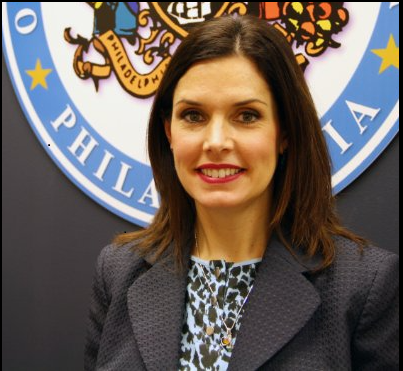Authored by Christy Brady
Alan Greenspan, the former Chair of the Federal Reserve, famously emphasized the critical issue confronting today’s generation and economy as the lack of financial literacy. This assertion retains its significance. Acquiring proficiency in the complexities of financial management stands as a fundamental life skill that eludes many, particularly in the absence of sufficient educational backing. It is crucial to highlight this pressing matter, especially during April, designated as Financial Literacy Month.
Throughout my tenure in finance, I have been surrounded by individuals well-versed in financial affairs. Colleagues frequently delved into conversations regarding saving, investing, and retirement planning through avenues such as pensions and 401ks. When I initially embarked on my career, juggling student loan payments, rent, and other expenses, they counseled me to initiate savings of $25 from each paycheck, progressively increasing this amount as my financial standing improved.
Upon reflection, I acknowledge the privilege of access to education, professional counsel, and mentors who imparted invaluable insights on financial systems and fostering prudent financial habits. With close to three decades spent in the City Controller’s Office, I have observed that exposure to financial education, comfort with financial concepts, and active involvement in personal finance are unfortunately uncommon for many.
Despite Philadelphia’s stature as a major urban center, it contends with significant poverty levels. As we endeavor to uplift communities from poverty, it is imperative to implement social programs that create stable job opportunities and nurture self-sufficiency. Integrating financial literacy into these initiatives is paramount.
Starting from the 2026-27 school year, Pennsylvania will enforce a mandate requiring both public and private high schools to offer a personal financial literacy course as a graduation prerequisite. This progressive measure is pivotal in equipping Pennsylvania’s forthcoming generations with the essential financial knowledge for success. I commend our state leaders for this significant accomplishment, aligning Pennsylvania with numerous states that have already embraced similar mandates.
Financial illiteracy contributes to widespread societal inequalities, disproportionately impacting underserved communities with low financial literacy levels. These communities are more vulnerable to making risky financial choices or falling victim to exploitative financial practices. Bridging this literacy divide should be a central focus in our mission to nurture generational wealth and financial empowerment.
In 2023, the United States’ financial illiteracy resulted in a staggering loss exceeding (388 billion. Furthermore, WalletHub’s research unveiled that Pennsylvania bore the highest outstanding college-loan balances nationwide, averaging)37,000 per borrower. Introducing financial literacy classes in high schools will equip students with the skills to navigate the expenses linked with higher education. For those currently grappling with student debt, acquiring the knowledge to effectively manage this debt on the journey towards homeownership or entrepreneurship is equally crucial.
To ensure the enduring prosperity of Philadelphians and avert financial instability, offering accessible financial literacy resources is imperative. In my office’s Community Affairs Division, we actively disseminate financial education, interacting with high school students and senior citizens to provide guidance on financial planning and protection against prevalent financial scams. Our forthcoming initiatives encompass collaborating with local Boys and Girls clubs to instill fundamental financial knowledge in young individuals, guaranteeing that financial education is not a belated revelation in high school.
Individuals of all age groups in Philadelphia merit access to financial literacy education. Empowering them with the tools to make informed financial decisions will pave the way for both immediate and lasting prosperity.
Christy Brady currently serves as the city controller.
